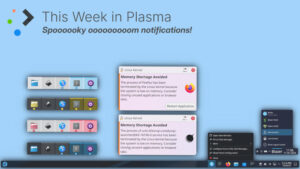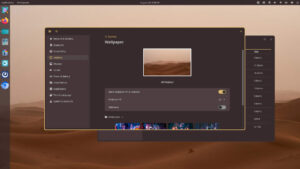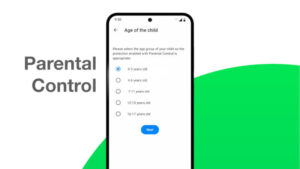I’ve said for years that if the folks at Canonical want to get serious traction with Ubuntu and truly compete with the likes of Microsoft and Apple, they need to come out with their own line of hardware. Face it, the big OEMs still show little to no interest in pre-installed anything other than Windows and most home computer users aren’t ever going to start installing their own operating systems.
Consumers generally just want to open the box and start computing. They’re not interested in what’s under the hood. As for the enterprise, their server needs are either being met by Red Hat, its clone CentOS, or they’re rolling their own in-house, starting with a “pure” Linux like Debian or Slackware.
What I’m trying to say is something we all already know. No company is ever going to get rule-the-world traction just by distributing their flavor of Linux, no matter how good it is–especially in consumer space. In the enterprise, you can point to Red Hat all you want, but that well isn’t big enough for two horses to drink from, even with IBM’s help.
But a good Linux distro like Ubuntu, one that’s been well-engineered to be easy to use and is at least as polished and free of bugs as Apple and Microsoft products, can succeed and become a major competitor. All it needs to do is follow the old-fashioned model of offering their software on their own hardware. Once this was how all computer companies worked. These days this is known as the Apple approach.
I’ve written about this before. For a long time I’ve thought this is what Shuttleworth & Company has in mind for Ubuntu. They’ve spent too much time, effort and money developing a highly polished product to just offer it up and hope enough people will bite and buy support contracts to keep them afloat. I’ve listened to Shuttleworth and his crew speak. They’re not stupid.
After Wednesday’s “Ubuntu Phone” announcement, I’m more convinced than ever that a grand scheme is in play that’s only being hinted at and that this new mobile component has something to do with it.
When Canonical’s phone announcement was first made, it seemed from press reports that the company was coming out with a completely different operating system for the phone–something akin to what Redmond has done with the Windows Phone 7 and 8 implementations. Indeed, from looking at all the news reports last week, it looked like we’d be seeing something called “Ubuntu Phone OS,” a separate release from Ubuntu’s desktop and server offerings.
From the stories I was seeing, it was even unclear whether this release would be available to the public to install on existing phones. Perhaps it would only be available pre-installed and us mortals could only get it from our not-so-friendly and not-so-favorite wireless providers.
This weekend, Steven J. Vaughan-Nichols over at ZDNet straightened us out:
“…unlike Microsoft with Windows RT for ARM-powered devices and … Windows Phone 8 for smartphones, there will be no separate version for each device. If all goes as planned when Ubuntu 14.04 rolls out in April 2014 one Ubuntu image will support smartphones, smart TVs, and computers.”
In other words, the same processor architecture specific image used to install Ubuntu on a desktop or laptop will be used for installation on a smartphone. Not only is this different from any phone OS we’ve seen before, the reason behind it is also different. The Ubuntu phone will have a feature set that’s very mobile centric, with navigation through hand gestures and such, but when the device is docked to a monitor and full-sized keyboard, it will switch to something like “desktop mode” and act exactly like desktop Ubuntu.
In my estimation, this is a very smart move; one that leads me to believe Ubuntu perhaps has plans to come out with a line of equipment that tightly integrates the Ubuntu mobile experience with the desktop or workstation. If they’re not planning on doing this on their own branded hardware, they’re certainly going to try to sell this to an OEM that wants to elevate itself from the Android mainstream crowd.
Now, I’ve watched enough episodes of Shark Tank to know this will be a hard sell. And even if they’re successful in selling the concept to an OEM, it’ll be difficult to monetize, given the copyleft licensing of GNU/Linux.
It’ll be easier for the Ubuntu folks to come out with the equipment and take it to market themselves, a strategy that will have long-term advantages if they’re successful. For one thing, they’ll be able to make sure that it’s done right. No more sloppy installations that don’t work out-of-the-box without some tinkering with configurations files, as we’ve seen with most Linux offerings from the likes of Dell.
The beauty here is they won’t need to make their own computer, or even have computers made specifically for them as Apple does. They’ll be able to order phones, desktops and laptops that are already being manufactured and slap the Ubuntu brand on them. In no time at all they can have phones, docking stations, computers, laptops–a whole integrated offering–ready to go. At that point, all they’ll have to do is open up some storefronts, call them Ubuntu Shacks or something, and they’re ready to go.
By the time they do this, they might already have traction in the enterprise, where the only hardware they’ll need to offer are perhaps phones and docking stations. With the right VAR guys working for them, they might be able to have a boatload of installations presold long before they have the software ready for release.
As unlikely as this may seem, it’s all extremely doable, especially if they start making marketing moves in places like China, India and in their own South African backyard, places where there is strong demand for less expensive alternatives to Microsoft and Apple. With a quality product, they wouldn’t need to position themselves as a low-cost alternative for long. Very quickly they could hand that job to Microsoft and start going eye to eye with Apple for the upscale market.
A free and open source Linux operating system on a cell phone, that’s tightly integrated to synch with a free and open source Linux operating system pre-installed on traditional devices, would be a winner in my estimation. I’m not saying it’s going to happen, but it could–and I’m beginning to suspect that’s exactly what Mark Shuttleworth has in mind.
What do you think? Am I nuts? Am I just another daydreaming Penguinista? Or could Ubuntu be getting ready to make an unprecedented move?
Christine Hall has been a journalist since 1971. In 2001, she began writing a weekly consumer computer column and started covering Linux and FOSS in 2002 after making the switch to GNU/Linux. Follow her on Twitter: @BrideOfLinux









It will never happen. Nobody goin to be interested in Linux on a phone. There is too many choices now and people like their Android.
uhhh… no linux on phones and what is android? not agreeing with the article necessarily but android/ubuntu have really confused the linux market.. and thats not even counting the GNU/linux parts of that argument
How soon we forget. A whole range of consumer machines, with Linux pre-installed, were for sale in the highstreet only some four years ago. They were called netbooks. Where are they now? All main manufacturers have since stopped netbook production.
linux IS android. netbooks did not fail because of an OSes they were supplanted by better tech. tablets many of which run linux/android.
Quake, I would say that Android is a version of Linux, NOT that Linux is Android. Linux is the kernel used not only in Android, but in hundreds of GNU/Linux distrubutions, as well as embedded in many devices. And you’re right about Netbooks to a degree. They were basically brought down because they were crippled, both in their specs and physically, with keyboards that were too small to use comfortably, etc.
Well that’s a novel idea, getting hardware manufacturers to install your OS on a computer and shove it down the throats of unwashed masses many of whom have no idea that hardware and software are two different things.
But it only works if you can get 20 manufacturers putting your OS on at least 5 of their models each year. It doesn’t work if crappy Dell puts your OS on one netbook every five years.
So let’s not delude ourselves. While there a company may emerge in the future that will put Linux on every desktop computer, that company is not Canonical. Almost a decade in the business and they have *not* announced *a phone* the other day. They announced a phone OS. They cannot sign on OEMs because they are small and weak. It takes a Google, and that’s the hard cold truth.
Meanwhile, to quote some movie, let’s not be such bigger losers that we don’t know when we’ve won. Linux is on over 40 percent of all consumer computing devices right now. It’s called Android.
I pretty much think the same thing. Do your own hardware, Ubuntu rocks, the phone looks awesome. The positive reception I have seen so far is getting me excited. A phone I can dock, full desktop, awesome! I think it’s going to happen 🙂
Manufacturers are looking towards alternatives. One reason is to avoid litigation from Apple. Samsung is already doing this. If the Ubuntu OS is great, people and manufacturers will want it. How many? Who knows. But it’s a strong possibility. I would argue that Android is as much Linux as Ubuntu is. Gnome, KDE, XFCE, or any other extra software isn’t what makes Linux Linux. The kernel is what makes Linux Linux. All the other software added to it is just extra. Anything that uses the Linux kernel is then by definition a derivative of Linux.
I think they should buy or partner up with a company like System 76 that already sells Ubuntu machines and like they said, to the Apple thing in emerging markets. I think they could take the low end, apple at top and keep MS in the middle. I think it would be a great idea and would not cost them a ton of money if they market right.
They have to go that route. OEMs will not do what they need. BUT if they start selling OEMs would be knocking at their door. Maybe they should do a “Nexus” like line of something!
@Ty I think the Nexus approach is a great idea. Put out a great line of “proof of concept” and “best of breed” hardware that would set the bar for the OEMs to follow!
In my opinion the key word is integration. Imagine that you are working for an SMB and your employer needs to buy only a phone and docking station for that and you have a phone and a computer, while you can’t do the same with Android or Windows or Mac. Android lack of production tools you necessary to do daily business. Also you will be able to manage all your assets from one single tool: Landscape. You get free cloud storage integrated into the phone with Ubuntu One. If I would start a business now I really consider Ubuntu as the main operating system for the company. And I not mentioned Juju, server operating system.
People don’t know what they want until you show it to them… People seem to forget that a couple of years ago there was no iOS nor Android, a whole market was created out of nowhere just fueled by good advertisement, making the consumers believe that the iPhone was the coolest thing ever, and if you don’t own one you are nobody is the reason of their success, why can the same be done by someone else? When in fact they (Canonical) have a better product on their hands… I completely agree with the article, because I’ve been thinking about it myself, if you want something to be done right do it yourself, right? I think an Ubuntu branded phone sold directly from Ubuntu would be the right way to go… Risky, but provably worth the try
And let’s not forget tablets. You can already put Ubuntu on the N7 (Kind of). However… Ubuntu on MS Surface kit, BB Playbook or anything else with a proprietary OS would be very cool.
All computing will ultimately run through miniature devices. The day that someone makes available an operating system that works across all major devices phone, tablet, tv and pc, and is interchangeable as a smart installation from one to the other, then that os will render all others obsolete. Imagine having a phone, that can dock to a tv allowing you to move, and create data which in turn can then be docked to a pc or tablet allowing you to work on the same data or a set of new data using the largest viewer available at all times. When that happens, I’ll gladly open my pocket book and wait in line to purchase not just the one device but all compatible devices.